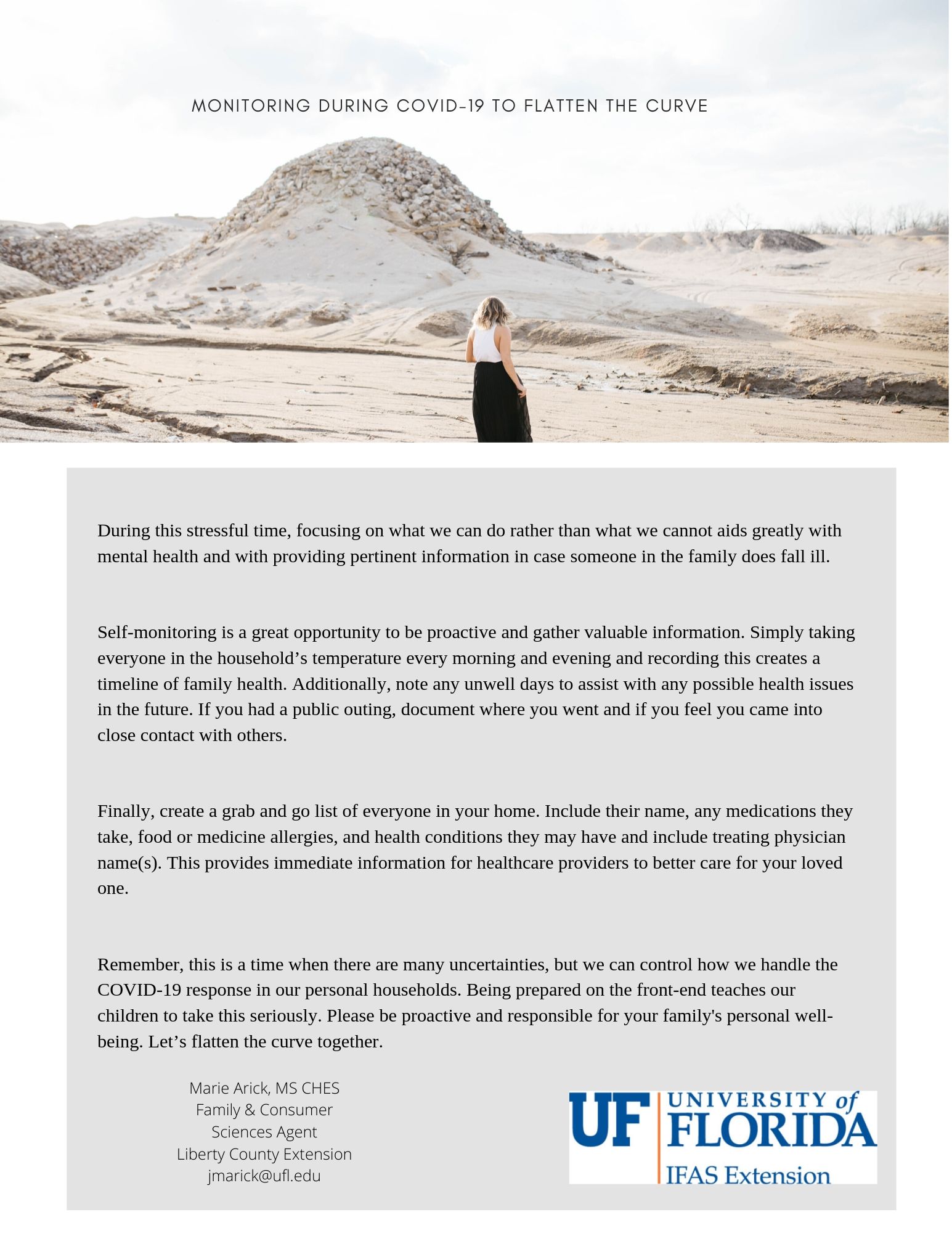
by Laurie Osgood | Jun 15, 2020

Photo Source: Laurie Osgood
With everything going on in the world today, it could be easy to forget one of the most important holidays of the year, Father’s Day. We will celebrate Father’s Day on June 21st this year, during Men’s Health Month! Father’s Day is a good time to show the men in our lives that we want them to be with us for a long time. Let’s celebrate Men’s Health Month by encouraging the men in our lives to adopt healthy habits and seek regular medical advice.
Most men do not like to go the doctor. A 2014 survey conducted by The Centers for Disease Control (CDC) determined that American men are much less likely to go to the doctor than women. Starting a conversation could encourage him to pay attention to his health as he ages. But how do we start the conversation with our father’s about their health issues? To ensure a stress-free conversation, pick a time and place with few distractions and present the topic in a loving and non-judgmental manner.
Here Are the Top Healthy Living Tips for Men:
- Schedule an annual physical exam: Annual physical exams can help spot potential problems before they get serious. Only you and your doctor can determine your best checkup and screening schedule. Preventative screenings such as an annual colonoscopy are based on a patient’s age and risk factors for developing a condition or disease, including family or personal history, age, ethnicity, and environmental exposure.
- Recognize the Signs and Symptoms of a Heart Attack: According to the American Heart Association, someone in the U.S. has a heart attack every 40 seconds. Therefore it is important for everyone to recognize the signs of a heart attack. These warning signs include pain or discomfort in the jaw, chest, arms, shoulders, neck, or back, feeling light-headed or weak and shortness of breath.
- Make sleep a priority: Many adults don’t get enough sleep. Sleep is essential for our bodies to maintain our healthy bodily functions. Sleep disorders and ongoing lack of sleep can increase the risk of heart disease, high blood pressure, stroke, and diabetes.
- Reduce Stress: High levels of stress can negatively affect a man’s lifestyle. Stress can be life threatening and can lead to a heart attack. UF/IFAS Extension’s Electronic Data Information Source (EDIS) offers a collection of information on various subjects including how to manage stress.
- Stop Smoking: Men who smoke are at a greater risk for heart disease, cancer, respiratory diseases and strokes. Quitting can help lower the risk for smoking-related illnesses. The Florida Department of Health’s Tobacco Free Florida campaign offers resources to help quit tobacco use.
- Exercise More: Regular workouts can improve heart health as well as reduce stress and weight. Experts tell us that we should all try to get at least 30 minutes of moderate physical activity each day to maintain a healthy lifestyle.
- Eat Healthy: A healthy diet should include a variety of fruits and vegetables, whole grains, lean meats, and low-fat dairy products daily. USDA offers tips for Men’s Health; 10 Tips: Get the Facts to Feel and Look Better .
Father’s Day is a great time to celebrate the men in our lives and encourage them to pay attention to their health and well-being because we want them to be around for a long time.
Going to the doctor may not be as fun as going to a ballgame or the beach, but having a conversation about their health may be the gift we can give our fathers on Father’s Day.
For more information on healthy living or other extension related topics, contact your local UF/IFAS Extension Agent.
Extension classes are open to everyone regardless of race, creed, color, religion, age, disability, sex, sexual orientation, marital status, national origin, political opinions or affiliations.

by Heidi Copeland | Apr 22, 2020
 Families across the country are adapting to the challenges in daily life caused by the COVID-19 pandemic. Families with children face even more challenges. The task of keeping children occupied, and attempting to keep up with schoolwork, monitoring “screen time,” feeding, etc. is NOT easy!
Families across the country are adapting to the challenges in daily life caused by the COVID-19 pandemic. Families with children face even more challenges. The task of keeping children occupied, and attempting to keep up with schoolwork, monitoring “screen time,” feeding, etc. is NOT easy!
Nonetheless, it is very important to remember that children look to adults for guidance. We can help make lemonade out of lemons, even in the face of a pandemic by focusing on the positive. Adults can model a whole host of problem-solving skills for children of all ages. We can also show children how to be flexible, how to make do and improvise, and how to be compassionate.
As we all work though adjusting to a new normal, know that WFSU public television has expanded their educational services by providing emergency at-home learning content to assist families, students, and teachers throughout their viewing region during the coronavirus outbreak.
The Public Broadcasting Act of 1967 requires Public Media (WFSU) to serve everybody, everywhere, every day for free. WFSU Public Media is doing just that.
WFSU Public Media is working hard pursuing their education mission, clearing their normal daytime schedules, broadcasting grade-appropriate instructional programming, as well as creating and curating educational games and other online content. WFSU educational television programs are geared to helping children succeed in school and in life (https://wfsu.org/education/).
The new daytime WFSU At-Home Learning block of programs begin at 6 a.m., focusing on preschool to 3rd grade learners. You will find “Wild Kratts,” “Daniel Tiger,” “Curious George” and other classic PBS KIDS programs.
At 11 a.m. programming shifts to target middle and high school students. Programs like “Nova” focus on science, “The Great American Read” on English Language Arts, “Masterpiece” on British literature and “American Experience” on U.S. history, just to name some of the PBS programs featured.
Plus, WFSU is working with local school districts to ensure that they can link students to these resources and utilize PBS Learning Media, an online repository of content that is aligned to Florida curriculum standards.
Additionally, WFSU, knowing that their youngest viewers and their families count on the entertaining and educational programs normally shown on the HD channel in the daytime, moved the PBS Kids 24/7 channel, to one of their digital services available free over-the-air and also to Comcast channel 203. It is also live streamed on the WFSU website: https://wfsu.org/education/watch-live-wfsu-pbs-kids-360/.
WFSU Public Media is also providing critical assistance through public safety communications and local programming that gives our communities trustworthy information about every aspect of the health emergency.
Thank you, David Mullins, general manager of WFSU Public Media, including the Florida Channel, and Kim Kelling, director of content and community partnerships at WFSU Public Media. Your timely assistance to every person in your viewing area is much appreciated.
WFSU – TV, Channel 11: Bay, Calhoun, Franklin, Gadsden, Gulf, Jackson, Jefferson, Hamilton, Lafayette, Leon, Liberty, Madison, Taylor, Suwannee, Wakulla counties and Georgia counties Decatur, Grady, Thomas and Seminole.
WFSG – TV, Channel 56: Holmes, Washington and Walton counties
by Julie McMillian | Apr 16, 2020
Can I go outside during the Coronavirus Pandemic? Is it a smart idea? As we are instructed by the CDC to isolate ourselves and embrace social distancing, we may start to feel a little restless or stir crazy after staying inside for a long period of time. Spring weather is great, especially in the mornings and evenings, here in Florida. Normally we would be entering a time when people are the most active outdoors. This year we must be a little more creative when deciding what we can do to enjoy daily activities outside of our home.

Family playing outside
Photo Source: UF/IFAS
Children usually need no encouragement to go outside. Youth that spend more time outside have positive outcomes with their health by interacting with their natural environments. They are curious about the world around them and their experiences outside will benefit them in regard to a positive attitude toward their environment. Adults have those same benefits but tend to forget or not have time in everyday life as it gets busy.
Therefore, the question is, what can we do that will keep us at a distance and be educational and productive? If you live in less populated areas, you might plant a garden, build an outside project that you have been putting off, enjoy a picnic, or hike and sight-see through the woods. If in the city and able, go for a walk or jog with your dog, take a bike ride or do some yoga especially if you are missing the gym. Your medical professionals will be glad you are participating in some physical activity and breathing in some fresh air. You might want to get in a lawn chair and just relax and soak up some vitamin D from a few minutes in the sun.
If you have recently become your child’s teacher, you can have learning activities outside. Science and math can be integrated by building a house out of natural resources, allowing students to collect materials and build while fostering creativity. Talk about ecosystems of trees and plants and how they might provide a home for insects or animals. Students could take a piece of paper outside and define what they see in their yard, integrating spelling and vocabulary, or write a short story based on what they hear and observe.
We are living and facing challenges today that we probably have not encountered before, so it is a good time to find an outlet to relieve stress and detour the onset of depression. The web is full of ideas for all ages if you run out of inspiration and some days we do. Remember to keep a safe distance from others, wash your hands frequently and follow your local guidelines but don’t be afraid to try something new that may be out of your ordinary routine. It might turn out to be your favorite hobby.
For more information on healthy living or other extension related topics, contact your local UF IFAS county extension office.
Supporting information for this article can be found in the UF/IFAS Extension EDIS publications:
Kids in the Woods
Why is Exposure to Nature Important in Early Childhood
COVID-19 Preventative Measures
UF/IFAS Extension is an Equal Opportunity Institution.

by Marie Arick | Mar 28, 2020
Monitoring during COVID-19 to flatten the curve; let’s focus on what we can do.

Flatten the Curve

by Laurie Osgood | Mar 26, 2020

The goal of National Healthcare Decision Day is to inspire Americans to communicate their end-of-life wishes about healthcare with their families and healthcare providers.
Although making healthcare decisions is often a difficult process, making decisions for others is even more complicated.
According to the 2018 Conversation Project national survey, Americans are becoming more comfortable talking to their loved ones about their end of life wishes. Over half (53%) of Americans say they would feel relieved if a loved one started “the Conversation.”

Start the family “conversation”
Photo Source: Laurie Osgood
Once you have initiated the conversation, experts recommend creating an advance care directive. Advance care directives are legal documents that are used to secure your decisions about end-of-life care, to avoid confusion and uncertainty later on. These legal documents can include a living will, health care proxy, health care power of attorney or instruction directive. Having an advance care directive in place will help make sure that your wishes about your health care are fulfilled, even if you are no longer able to communicate your wishes.
Don’t wait for “the right time” to talk with your family, everyone should plan for their future, before a crisis arises.
There are many tools and online resources that can help you and your family begin this important conversation.
To learn more about National Healthcare Decision Day and advance care directives. Visit NHDD.org.

by Melanie Taylor | Mar 12, 2020

Speak openly with your doctor about any concerns you may have regarding your health. (Photo source: Tyler Jones, UF/IFAS)
We are in the depths of flu season and now the Coronavirus (COVID-19). Although we need to proceed with caution, we also want to avoid causing a panic. Both viruses are very concerning, but with good hand washing skills and a few other daily steps you can do your best to prevent you and your family from becoming sick.
Hand washing is one of the best ways to protect yourself and your family from getting sick. You can help yourself and your loved ones stay healthy by washing your hands often, especially during these key times when you are likely to get and spread germs:
- Before, during and after preparing food
- Before eating food
- Before and after caring for someone at home who is sick with vomiting or diarrhea
- Before and after treating a cut or wound
- After using the toilet
- After changing diapers or cleaning up a child who has used the toilet
- After blowing your nose, coughing or sneezing
- After touching an animal, animal feed or animal waste
- After handling pet food or pet treats
- After touching garbage
Follow these Five Steps Every Time You Wash Your Hands:
- Wet your hands with clean, running water (warm or cold) and apply soap.
- Lather your hands by rubbing them together with the soap. Lather the backs of your hands, between your fingers and under your nails.
- Scrub your hands for at least 20 seconds. Need a timer? Hum the “Happy Birthday” song from beginning to end twice.
- Rinse your hands well under clean, running water.
- Dry your hands using a clean towel or air dry them.
Use Hand Sanitizer When You Can’t Use Soap and Water
You can use an alcohol-based hand sanitizer that contains at least 60% alcohol if soap and water are not available. Washing hands with soap and water is the best way to get rid of germs in most situations. If soap and water are not readily available, you can use an alcohol-based hand sanitizer that contains at least 60% alcohol. You can tell if the sanitizer contains at least 60% alcohol by looking at the product label.
- Sanitizers can quickly reduce the number of germs on hands in many situations.
- Sanitizers do not get rid of all types of germs.
- Hand sanitizers may not be as effective when hands are visibly dirty or greasy.
- Hand sanitizers might not remove harmful chemicals from hands like pesticides and heavy metals.
How to Properly Use Hand Sanitizer:
- Apply the gel product to the palm of one hand (read the label to learn the correct amount).
- Rub your hands together.
- Rub the gel over all the surfaces of your hands and fingers until your hands are dry. This should take around 20 seconds.
Caution! Swallowing alcohol-based hand sanitizers can cause alcohol poisoning if more than a couple of mouthfuls are swallowed. Keep it out of reach of young children and supervise their use.
Conclusion – Other Basic Tips to Prevent Spread of Illness:
- Wash your hands often with soap and water for at least 20 seconds. If soap and water are not available, use an alcohol-based hand sanitizer.
- Avoid touching your eyes, nose and mouth with unwashed hands.
- Avoid close contact with people who are sick.
- Stay home when you are sick.
- Cover your cough or sneeze with a tissue, then throw the tissue in the trash.
- Clean and disinfect frequently touched objects and surfaces.
Be sure to utilize credible sources to find your information. The Centers for Disease Control and Prevention (CDC) and the Florida Department of Health are excellent resources.
CDC page Preventing COVID-19 Spread in Communities https://www.cdc.gov/coronavirus/2019-ncov/community/index.html
CDC frequently asked questions (FAQs) https://www.cdc.gov/coronavirus/2019-ncov/downloads/2019-ncov-factsheet.pdf
Florida Department of Health frequently asked questions (FAQ) http://www.floridahealth.gov/diseases-and-conditions/COVID-19/faq.html
If you have further questions or concerns, please contact your local Department of Health for assistance.
Sources:
Center for Disease Control and Prevention – https://www.cdc.gov/
Florida Department of Health – http://www.floridahealth.gov/












